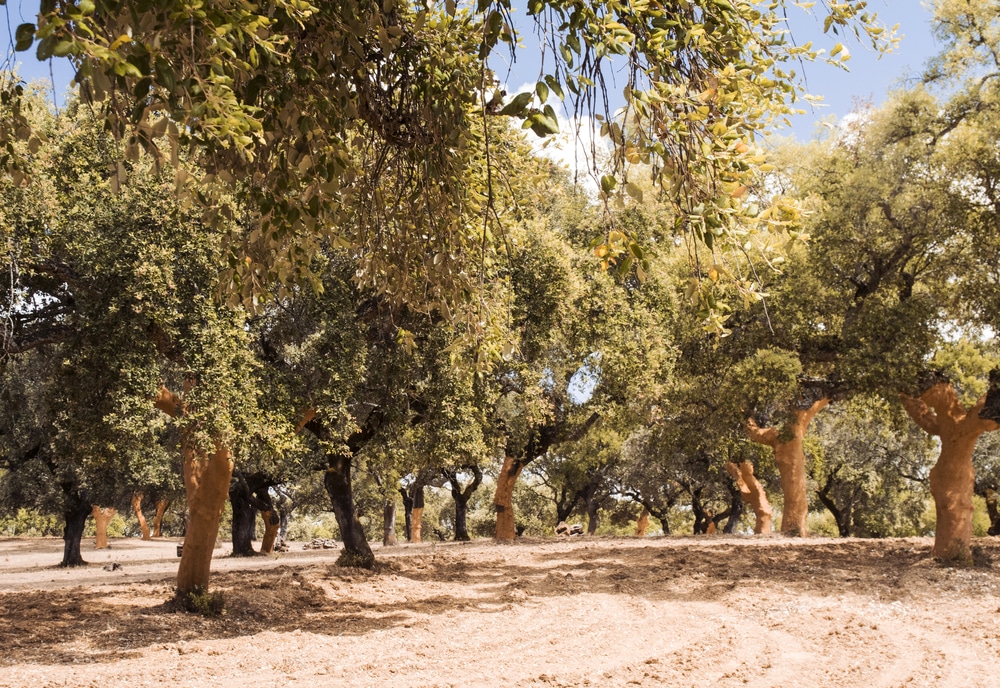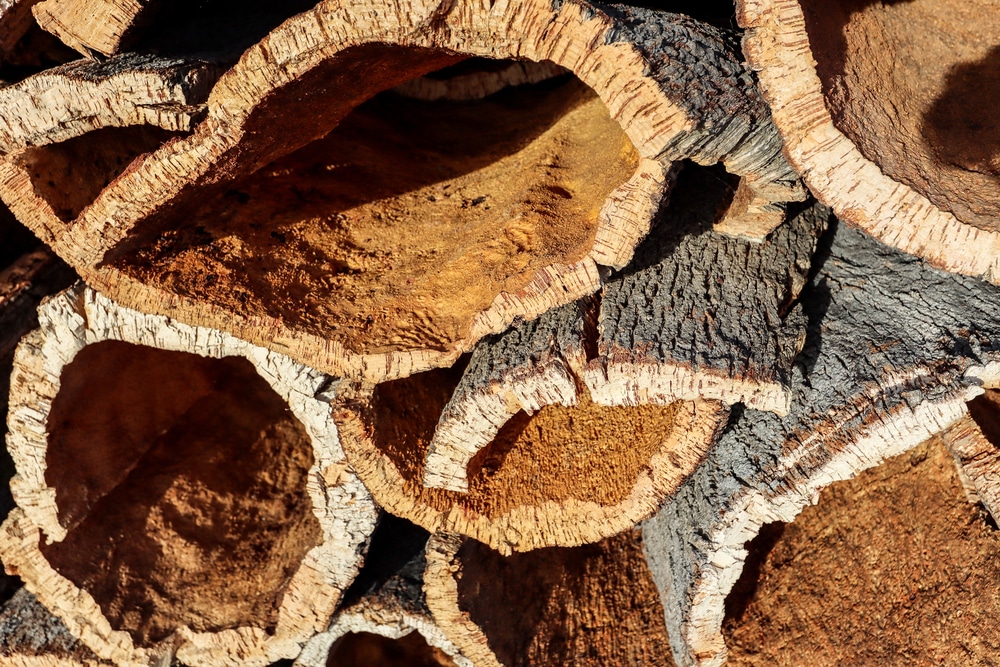Why we are crazy for cork! Why cork? What’s so special about this material that warrants our obsession? The answer lies in its remarkable sustainability and versatility. The cork stopper that seals our wine plays a crucial role in its quality and has a significant impact on the environment. If you’re a wine lover who cares about the planet, choosing 100% natural cork is a wise decision. Compared to synthetic alternatives such as box wine, screw caps and glass closures, natural cork is the most sustainable and eco-friendly option available. Moreover, 97% of wine enthusiasts associate natural cork with quality wine. This is because a natural cork stopper is impermeable to both liquid and gas, while allowing a small amount of oxygen into the bottle, enabling the wine to age gracefully over time.
So, why exactly is natural cork better for the planet? Let’s explore four reasons why cork is a sustainable material worth choosing. The next time you reach for a bottle of wine, make the eco-friendly choice: Choose cork.
Cork is Incredibly Sustainable
Cork is as natural, sustainable, renewable, and environmentally friendly as a material can be. The cork used in natural wine stoppers is harvested from the bark of cork oak trees in Mediterranean Europe and North Africa. The trees aren’t cut down; instead, their bark is carefully stripped away by hand in a skilled trade passed down through generations.
What is Cork? Cork comes from the harvested bark of the Quercus Suber tree. Formed by the phellogen in the outer bark of the cork oak, it can be stripped off without harming the tree. The tree then regenerates new phellogen.
It takes between nine and twelve years for the bark to regrow thick enough for harvesting again. During this regrowth period, the trees absorb up to five times more carbon from the atmosphere to fuel the photosynthesis required for regeneration. This carbon is then locked away in the soils. For every kilogram of cork produced, cork oaks absorb an average of 55 kilograms of CO2 from the atmosphere. The cork industry supports 2.7 million hectares of cork oak forests, which clean the earth’s air at remarkable rates.
It is estimated that every year cork oak forests retain up to 14 million tons of carbon dioxide, a sizeable contribution for reducing greenhouse gas emissions, the main cause of climate change. (Source: Euronews)
These forests are not only excellent carbon sinks but also hotspots of biodiversity, providing crucial habitats for various threatened species. Over 200 animal species and 135 plant species, some of them endangered, find their preferred habitat in a cork oak forest. When Cork Oak forests are farmed and maintained, they create a biologically rich and variable place supporting the world’s 360 biodiversity. Cork oaks play a key role in maintaining forest ecosystem health, contributing to water retention, soil conservation, and forest fire prevention.

It is estimated that there are over 5.4 million acres of cork forest. About one third (approximately 1.8 million acres) is situated in Portugal, which represents 23% of the national forest area. Half of the world cork production is Portuguese. (Natural Habitat Adventures)
Versatility of Cork
Cork’s eco-friendly credentials are matched by its versatility as a raw material. It’s naturally moisture-wicking, cushioning, insulating, fire-resistant, antimicrobial (odor-repellent), biodegradable, buoyant, and aesthetically pleasing. These qualities make cork an ideal material for a wide range of applications, including packaging. It has been used in everything from roofing and flooring to fishing floats, baseballs, musical instruments, and even spaceships.
Renewable, Recyclable, and Biodegradable
Natural cork is an environmentally friendly material that completely biodegrades or can be readily recycled without creating significant secondary waste.
At Neal Vineyards, we’re proud to use natural cork, not just for its benefits to our wine, but also for its positive impact on the planet. Choose cork and join us in making a sustainable choice that supports our environment.

